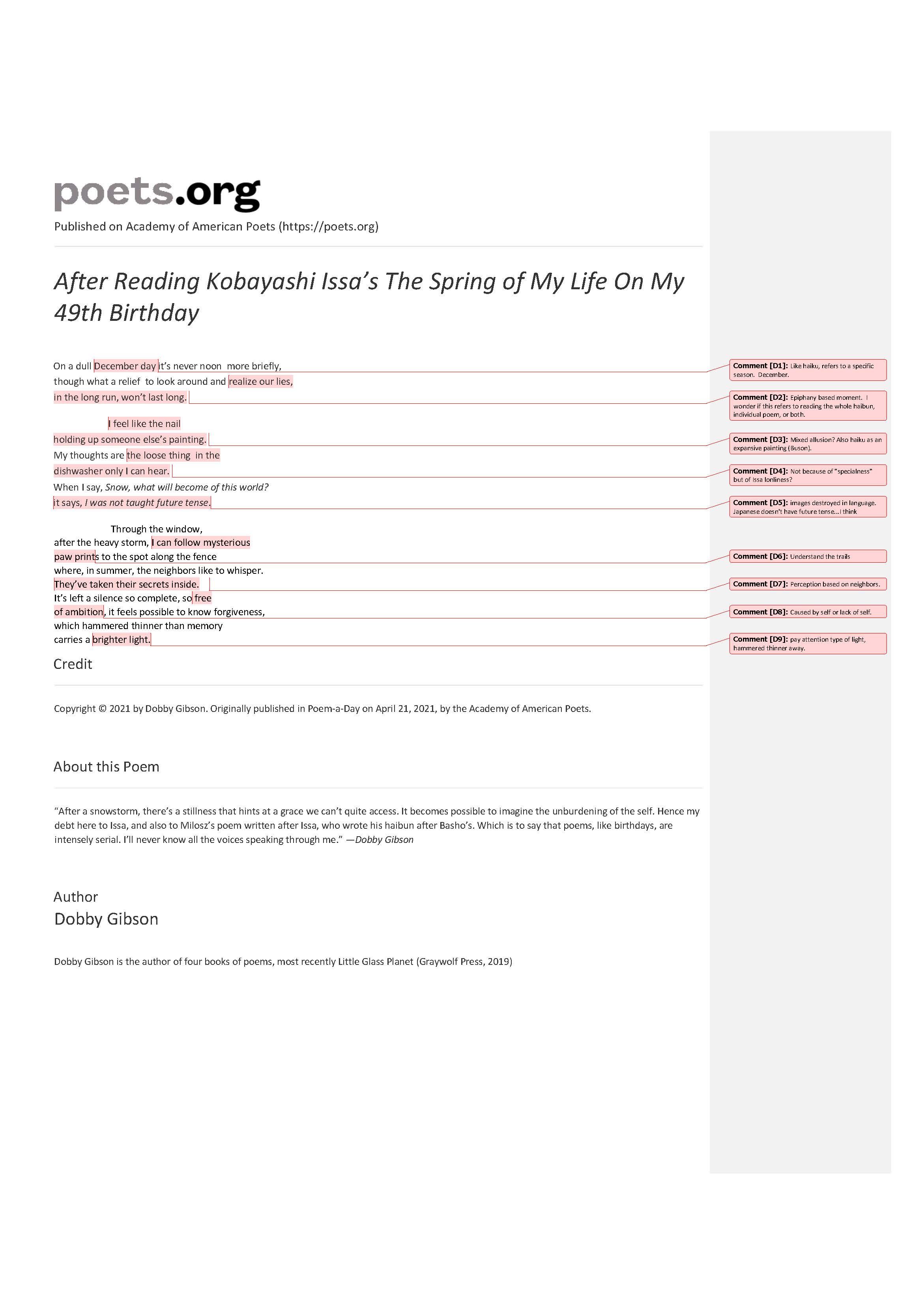Analysis of "After Reading Kobayashi Issa's The Spring of My Life On My 49th Birthday" by Dobby Gibson
Poem Found Here: "After Reading Kobayashi Issa's The Spring of My Life On My 49th Birthday" by Dobby Gibson
As the poem continues, this perspective changes to the smallness of things. Something Issa, I think, would've appreciated the perspective of, "I feel like the nail / holding up someone else's painting." How important is that nail in the grand scheme of things? Art, even someone else's, being held up by someone else has meaning, but the "feeling" of being a foundation behind the scenes. No one appreciates the nail. "My thought are the loose thing in the / dishwasher only I can hear." Humorous, but poignant imagery adds to the mental state of the speaker. There's a sense of loneliness within context: lies (and memories) being forgotten, being never seen behind an artifice, being the only one to understand the loose parts within. With the exception of the first stanza, the images are together. The lies being the separate thing to acknowledge first.
"When I say, Snow, what will become of this world? / It says, I was not taught future tense." Anthropomorphizing snow seems like a reflection from the speaker to give voice to his internal thought process. Of course the speaker was taught future tense, but not this speaker at this moment -- where the mentality feels there's no concrete future. He and the snow are one in this way.
Through the window,after the heavy storm, I can follow mysteriouspaw prints to the spot along the fencewhere, in summer, the neighbors like to whisper.They've taken their secrets inside.
Note how in winter, the speaker can actualize the surrounding around him, even if they are paw prints. The paw prints were actually there; yet, in Summer the speaker has to interpret his surrounding, "the neighbors like to whisper. / They've taken their secrets inside." There's a sense of judgement associated with Summer as to expose a certain sense of paranoia from the speaker. The ambiguous pronouns here of "They" and the upcoming "It" feels like developments from the speaker to embrace more of an all encompassing surrounding.
"It's left a silence so complete, so free / of ambition, it feels possible to know forgiveness," what does "it" refer to? The paw prints? The neighbors? The secrets? All of it? This lack of knowing, but knowing what is around and knowing it won't last long -- the lies, the feeling, the temporariness of things. From there, forgiveness is possible, from who and from what, it doesn't matter. The concept, "which hammered thinner than memory / carries a bright light" is able to come in physically through denseness and brightness from a memory which may be full of lies and the unknown.

Comments
Post a Comment